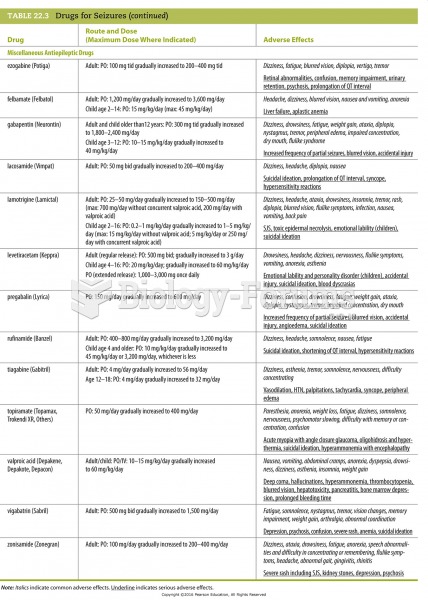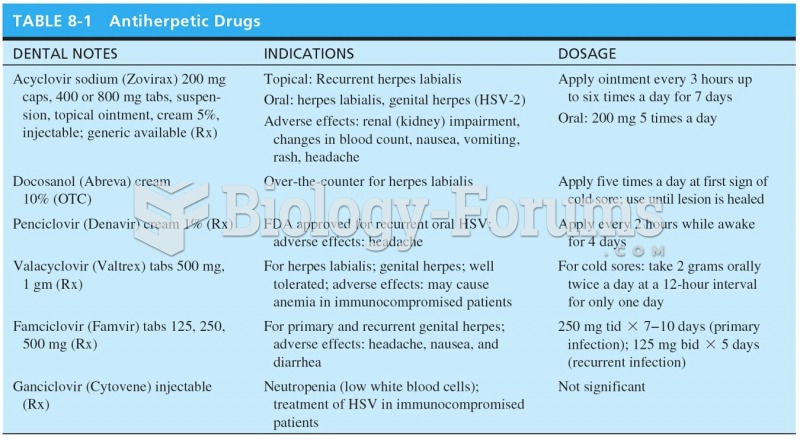|
|
|
The most common treatment options for addiction include psychotherapy, support groups, and individual counseling.
On average, someone in the United States has a stroke about every 40 seconds. This is about 795,000 people per year.
Coca-Cola originally used coca leaves and caffeine from the African kola nut. It was advertised as a therapeutic agent and "pickerupper." Eventually, its formulation was changed, and the coca leaves were removed because of the effects of regulation on cocaine-related products.
Cancer has been around as long as humankind, but only in the second half of the twentieth century did the number of cancer cases explode.
The toxic levels for lithium carbonate are close to the therapeutic levels. Signs of toxicity include fine hand tremor, polyuria, mild thirst, nausea, general discomfort, diarrhea, vomiting, drowsiness, muscular weakness, lack of coordination, ataxia, giddiness, tinnitus, and blurred vision.







